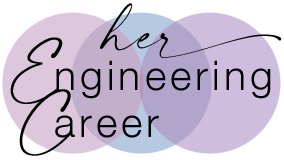Episode Transcript
You love the challenge in your engineering career.
But you’ve finished off one project and you’re rotating off another. So there’s a lull in the action.
And although it’s kinda nice to have a break, you’re past that now and ready to take on your next opportunity.
You’re looking to ramp your workload back up to your capacity.
But no one has approached you about this. And no ideas have presented themselves.
So this is a great opportunity – one of many you’ll encounter in your engineering career – to take the initiative.
Taking the initiative is really important for advancing your career. And it’s especially so because much of what you do in engineering involves initiative.
So let’s explore that.
Ways to take initiative. When you should or shouldn’t take it. And why.
Taking Initiative at All Stages of Your Engineering Career
In your early career, taking the initiative helps you learn. It may be required if you’re not getting guidance.
It shows your ability to be independent, resourceful and self-starting. And it shows your leadership potential.
For example, in my first job at the lab, I was given a pile of reports to read to help me get up to speed.
But other than that I didn’t get a lot of guidance at first.
It took me a while – and a couple of really dry reports. But I eventually realized I needed to take some initiative.
I needed to ask for work instead of waiting around for someone to tell me what to do.
That’s what it took to kick-start my job. And it was a good lesson for me.
In your mid-career, taking the initiative is critical for building leadership and creative skills.
It shows your ability to apply ideas, and work with people and resources to make them happen. And it helps you transition from taking direction to giving it.
In your late career, taking the initiative is pretty much expected. At this point it’s on a bigger scale and has more impact.
It shows your ability to build on your knowledge and experience to influence strategies and decisions.
Taking the initiative shows your skills in making measurable improvements and affecting organizational outcomes.
What It Means to Take the Initiative in Your Engineering Career
Taking the initiative means being proactive, self-starting and persistent. It means deciding or asking to do things without being told.
It means acting, not reacting.
People who take initiative are enterprising and resourceful. They anticipate, prepare, prevent and improve.
Taking the initiative can be as simple as being curious, asking questions and looking for opportunities. Here are some more specific examples:
- Speaking up to offer your ideas and opinions, to ask for what you need, or to request feedback or clarification.
- Getting involved to learn or find a new opportunity.
- Stepping in to help solve a problem or tackle an issue.
- Reaching out to meet people or train new employees.
Or it can be more complex, involving key organizational strategies, programs and customers.
The Best Time to Take Initiative, or Not
Is it always a good idea to take initiative? Well, no.
There are a few rules to consider when you’re deciding whether or not to dive in. You don’t want to burn yourself out. Or step on other people’s toes. Or disrupt organizational norms.
Take the initiative when:
- It aligns with you and the organization’s goals.
- You have the time, the ability and the authority to accomplish it.
- It doesn’t interfere with your primary work.
- You have a well-thought-out idea, considering the risk, cost, and relationships involved.
- You have the persistence and resilience to see it through.
- It’s well-timed among organizational events and situations.
How You and Your Engineering Career Benefit from Taking Initiative
There are substantial benefits of taking initiative – for you, your engineering career and your organization or community.
If you’re looking for more visibility and recognition, or for something to boost your resume, various ways of taking initiative can give you those.
It’s also a great way to learn new skills and take on some extra responsibility.
If you’re a proactive person you tend to contribute and innovate more.
Overall taking initiative is great for your career growth:
- It helps you stand out, giving you an advantage when you’re competing for challenging roles and higher level positions.
- It builds confidence, strengthens your relationships and widens your network.
- It enhances your skills in problem-solving and critical thinking.
- And it boosts satisfaction and career fulfillment.
I invite you to use initiative as a career tool.
Strike a good balance between self-management and taking the initiative. So that you continue at a good pace on the path to your vision.
If you’d like help deciding how and when to apply initiative in your particular career situation, sign up for a strategy session with me.
We can work together to improve your ability to take initiative. And thus ramp up your confidence and satisfaction.
Be strategic about taking the initiative in your career. It’ll improve you as a person while helping you advance as an engineer and leader.
Next time on Her Engineering Career Podcast we’ll discuss taking risks for more success and joy in your career journey. You won’t want to miss Episode 129.

